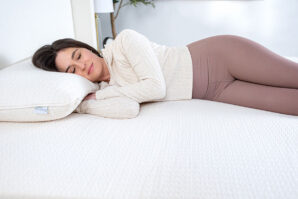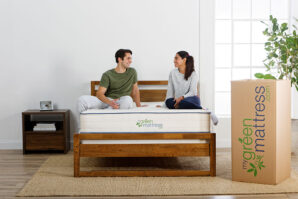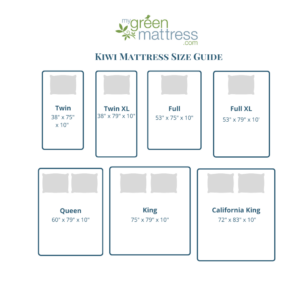The Choice is Yours
As with almost every aspect of parenting, there has been an ongoing debate as to whether it is wise to sleep in the same bed as your baby. And, like most parenting decisions, the choice is yours. You could study the endless lists of pros and cons associated with co-sleeping, or you could just do what parents have done for as long as there have been children being born, trust your gut.
While co-sleeping with your baby is not the right choice for every parent or for every situation, there is some evidence that doing so can result in both short and long term benefits for you and your child.
Short Term Benefits of Co-Sleeping
One of the most obvious benefit to sharing a bed with your infant is the ease of it, especially for mothers who are breastfeeding. A baby that wakes and cries in the night can be quickly and easily calmed. With a little planning, a baby can be fed, changed and soothed all without the need to get out of bed.
For very young infants, sleeping next to mom or dad can not only ease their stress but also help them to regulate their temperature. An infant that gets overheated cannot throw off the covers to cool him or herself. A parent lying next to an infant can do it for them.
Long Term Benefits of Co-Sleeping
Multiple studies have charted the course of children’s lives from birth to adulthood to study the long term effects of different sleeping arrangements. While there were no definitive results given as to whether co-sleeping was better or worse for a child, there were some distinct strengths attributed to children who had shared a bed with their parents as babies.
Although it goes against the conventional wisdom, preschoolers who had shared a bed with their parents as infants tended to be more independent than their peers who had not. They also seemed to form stronger interpersonal relationships with their peers and were more able to work through conflict. This is perhaps due to the more intimate bond between parent and child that sharing a bed can create. The stronger the bond the more confident and self-reliant children tend to be.
Know the Risks Associated with Co-Sleeping
Sharing a bed with your baby is not without risks, but most of these can be easily avoided with some basic information and common sense.
Do not use fluffy comforters or extra pillows while your baby is young. Both of these can cause suffocation in newborns who cannot move their heads if something covers their nose or mouth.
Rarely it has been reported that a parent rolled over on a baby and suffocated it. The risk of this can be lessened by not using sleeping medication, alcohol or other drugs that may cause you to fall into a heavy sleep.
Your Mattress Makes Difference
Consider your mattress. Never put a newborn to sleep on a thick cushion-topped or foam mattress. The way these types of mattresses conform to your body can be a hazard to a sleeping baby. Even traditional mattresses may be cause for concern. The chemicals used in the manufacture of mattresses, and those they are treated with to make them fire retardant, can turn into gases when warm bodies sleep on them. These gases are unknowingly inhaled during sleep. The risk to infants and young children may be much greater than to adults.
These risks can be avoided by sleeping on a mattress made from organic and nontoxic materials and manufactured without the use of chemicals that may be hazardous to people or the environment.
If you have decided that co-sleeping with your baby is the right choice for you, check out the mattresses made here in America by My Green Mattress. They offer a large selection of affordable and safe mattresses. All mattresses are made from GOTS and GOLS certified organic materials and are GreenGuard Gold Certified for low emissions. The mattresses are manufactured in an environmentally and socially responsible factory located in Willowbrook, Illinois.
For more information about our mattresses and how they can benefit you, contact us at My Green Mattress.









